Supreme Court Overturns Roe v. Wade, Thousands Gather at State Capitol to Protest
Demonstrators at the protest of the overturning of Roe v. Wade at the Utah State Capitol on Friday, June 24, 2022. (Photo by Xiangyao “Axe” Tang | The Daily Utah Chronicle)
June 25, 2022
The Supreme Court voted on Friday to overturn Roe v. Wade, the landmark decision made in 1973 to protect the right to an abortion. The decision comes over a month after a draft of the majority opinion was leaked.
The draft said the provision used to defend the decision, the right to privacy implied by the due process clause of the 14th Amendment, can only guarantee rights not mentioned in the constitution if they are “deeply rooted in the Nation’s history and tradition.” Justice Samuel Alito argued that abortion did not fit this requirement.
The 14th Amendment has been used to decide other landmark cases, including Loving v. Virginia which legalized interracial marriage, Obergefell v. Hodges which legalized same-sex marriage and Griswold v. Connecticut which gave married couples the right to buy and use contraception.
Justice Clarence Thomas expressed in a solo concurring opinion that the court should “reconsider” the Griswold, Obergefell and Lawrence v. Texas (protects same-sex relationships) cases.
With no more federal protection, the question of abortion rights has been left up to states to decide individually. Utah is one of 13 states with trigger laws in place, written to take effect in the case that Roe v. Wade is overturned.
Utah’s trigger law, S.B. 174, was passed in the 2020 legislative session. It bans abortions except in the cases of rape, incest, or necessity due to serious health risk to the mother or severe birth abnormalities in the child. In the case of rape or incest, the incident must be reported to law enforcement. Birth abnormalities must be agreed upon in writing by two physicians.
The law officially went into effect just after 6 p.m. on Friday after being certified by the legislature’s general counsel. It makes performing an abortion a second degree felony, punishable by up to 15 years in prison. Doctors and clinics found to be in violation of the law could lose their licenses.
With S.B. 174 in place, Utahns wanting to acquire an abortion for reasons outside of these circumstances will have to travel to a clinic in the nearest abortion-friendly state, Colorado.
According to a recent survey, the majority of Americans support maintaining Roe v. Wade and keeping abortion legal.
Planned Parenthood Utah said they would continue to provide abortion services until the law came into effect, after which the organization would have to stop performing abortions and refer those seeking it to facilities in other states.
Thousands Gather at Utah State Capitol to Protest the Ruling
The Supreme Court’s decision has been met with anger and celebration across the country. In Utah, thousands of people gathered at the state capitol to protest the decision.
The rally was organized by Planned Parenthood. Another group of protestors, organized by the Utah Coalition of Leftists, met at Washington Square Park and marched up to the capitol building to join the rally.
The crowd packed in tight, filled the steps of the Capitol and stretched back into the grass. Signs stuck out from the crowd, reading various messages including “abortion is healthcare” and “bans off our bodies.”
Various community members delivered speeches at the event, including a church minister, representatives from local organizations like Comunidades Unidas and women with personal experiences with abortion.
Candida Duran Taveras, director of community engagement at Planned Parenthood Utah, opened the event by acknowledging the ongoing struggle for abortion access prior to the supreme court’s decision.
“Roe was a right by name, but access to abortion care was never guaranteed,” Taveras said. “Black, Indigenous and other communities of color, immigrant communities, people with low incomes, people with disabilities … haven’t had access to abortion in the way that they should.”
Reverend Monica Dobbins, minister of the First Unitarian Church of Salt Lake City, spoke about her faith driving her support of abortion rights.
“Abortion isn’t against everyone’s religion,” Dobbins said. “Unitarian Universalists, Jews, Muslims, Baha’i … also Christians. A majority of American Christians believe abortion should be legal all or most of the time.”
In between speakers, Taveras led the crowd in chants, including “abortion is a human right” and “our bodies, our lives, our right to decide.”
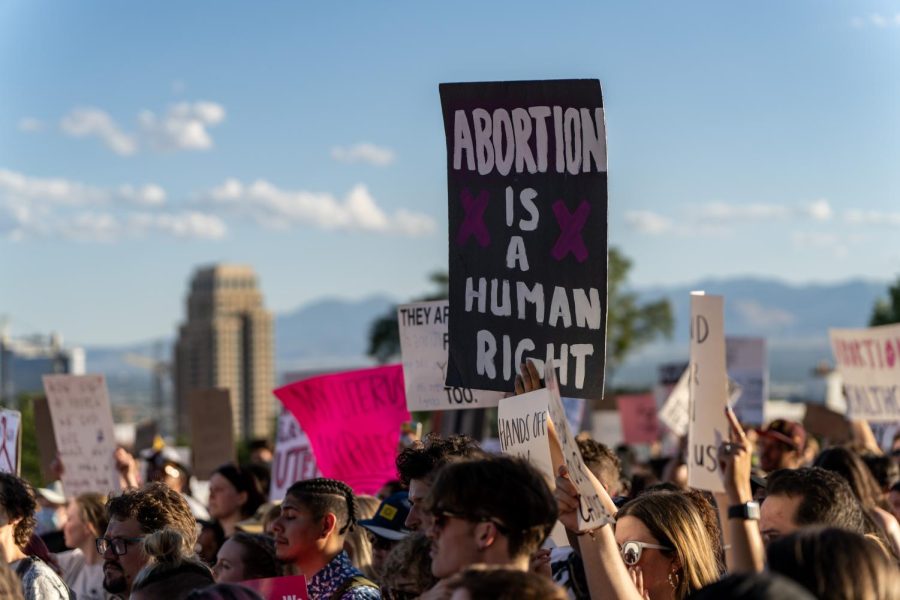
One woman named Heather shared her personal abortion story, beginning and ending her speech with the words, “I have had an abortion.”
“I never shied away from talking about my abortion because I do not think I did anything that I should be ashamed of,” Heather said. “One in four women have had an abortion, so I know I’m not alone.”
Denise Weaver, organizer for the Party of Socialism and Liberation, spoke critically of the Supreme Court justices for their actions.
“In this purported democracy of ours,” Weaver said, “how is it possible that five millionaires who were never elected, who serve life terms, get to decide the fate of tens of millions of women?”


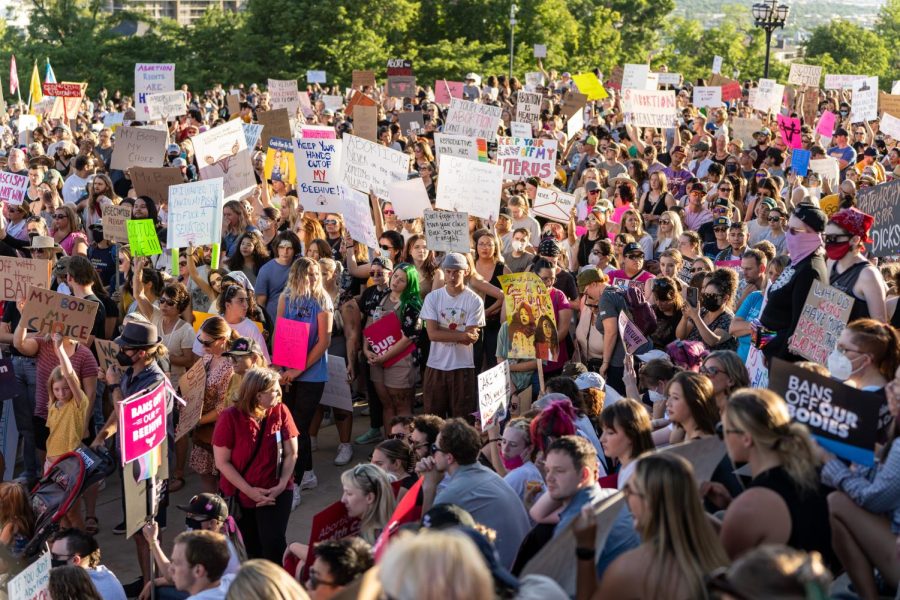
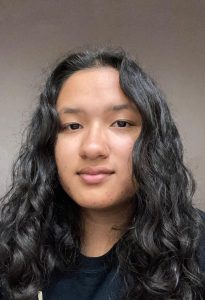
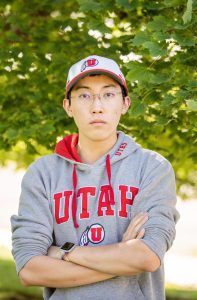

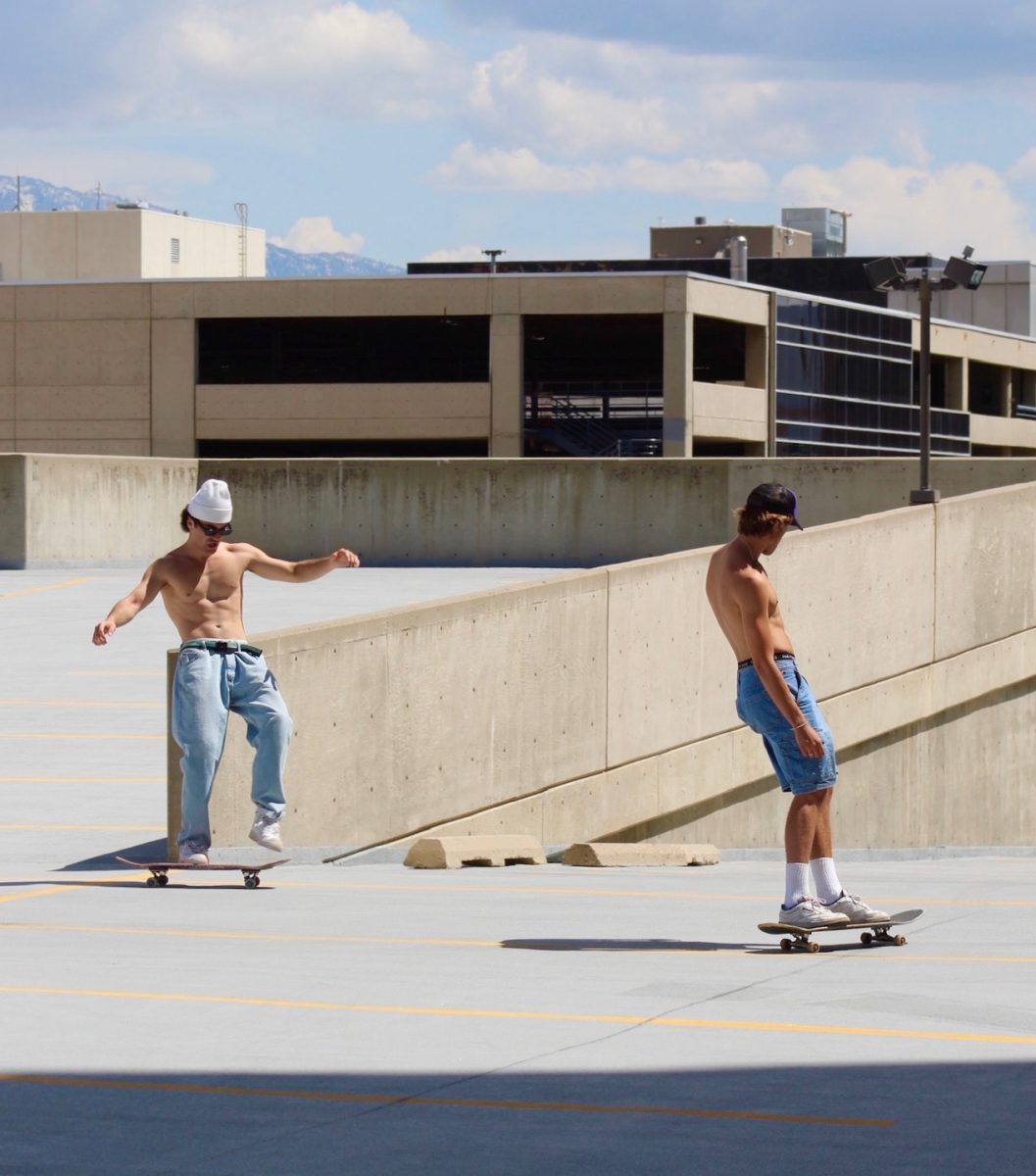
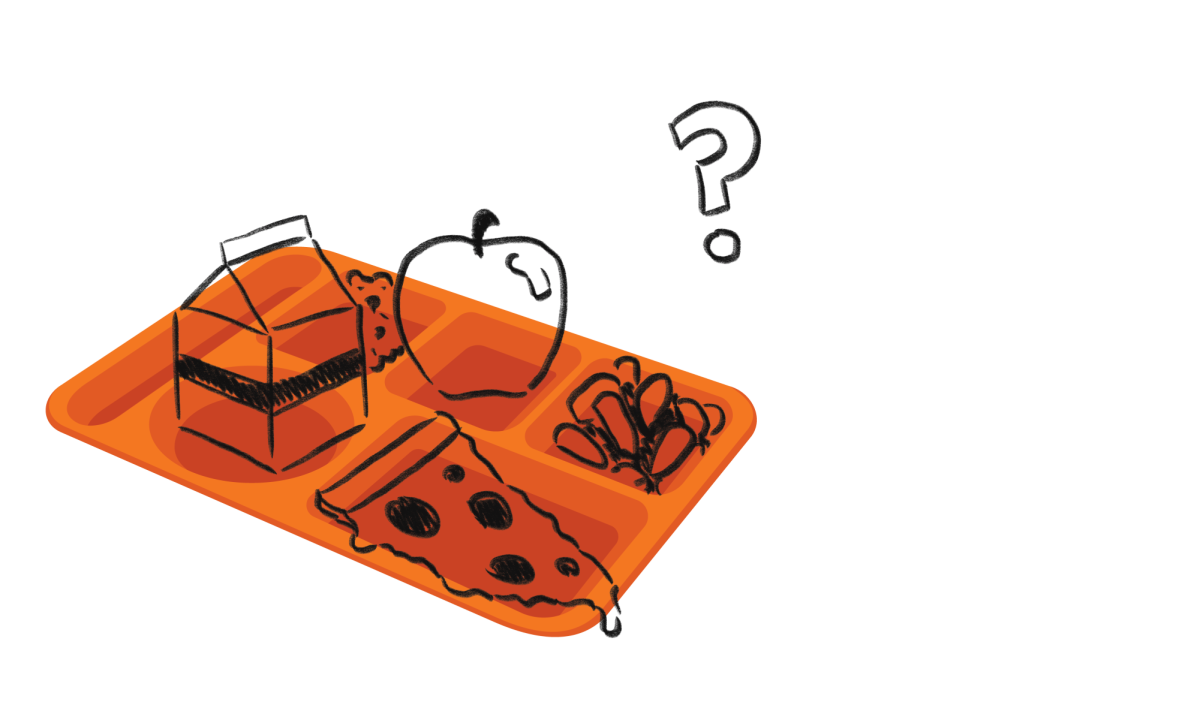
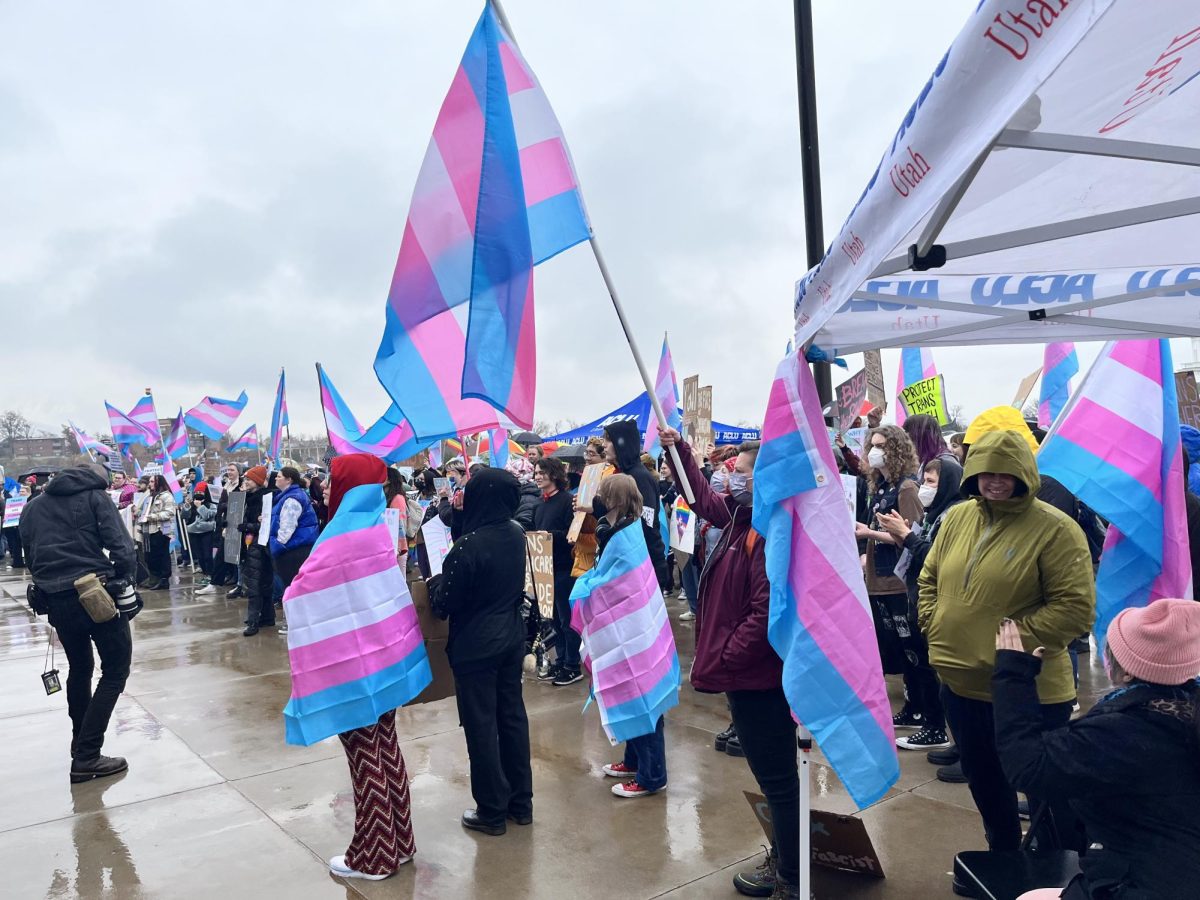
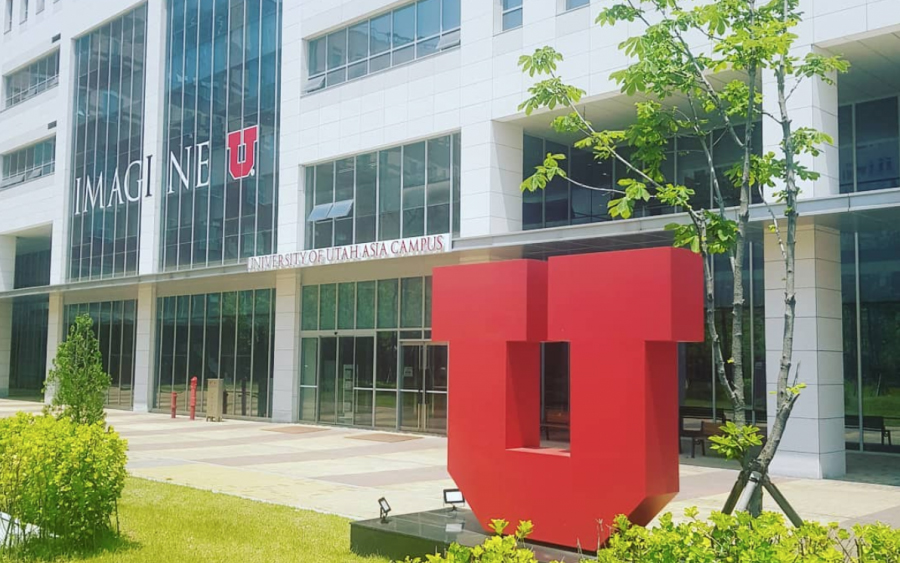




John Hedberg • Aug 19, 2022 at 9:48 am
Susan M,
You said, “Never trust a Republican. They are turning our nation into a neo-fascist state”.
(Partial Re-Tweet)
It’s always about targeting groups you can paint with your false blame-hate, isn’t it? Pure projection of your worst feelings, which you refuse to take responsibility for. The sad thing is that you apparently don’t even know you’re repeating Marxist propaganda that’s killed millions over the last century. Because you don’t read.
Among other mis-statements, your anti-Christian assertions are empty AND inverted. Abolitionist religious organizations started women’s suffrage, not just in this country, but worldwide. My grandmother used to tell me family stories about our Abolitionist roots, ending slavery and standing up for the rights of everyone dis-enfranchised, including and especially women. They wrote & passed the Bill of Rights! Targeting religion as bigoted, when you’re the one spreading bigoted hate speech about religions and history you clearly know nothing about, makes you the oppressor, since these people are the ones who fought for the rights you so obviously took for granted.
Do what they did. They (these religious people) passed amendments to the Constitution (13th, 14th, 15th, 19th, etc.) which enshrined equal rights for ever-expanding groups of people, trying to fulfill the original promise of the Declaration of Independence by improving the Constitution in order to form a more perfect Union. If you refuse to respect what their spilled blood and sweat accomplished, that doesn’t make them the a**holes, that makes you!
And then there’s your smear against Republicans, without evidence, without due process, just hate because you feel hateful, so why not use hate speech against millions of innocent people? When has fascism like that ever led to a bad end in the past (start with Kristallnacht, if you “feel” like looking it up).
Poll Utahns and find out what number of weeks Utahns most support to keep abortion open, legal, and safe. If most Utahns agree to 16 weeks, craft a bill with the Law School for 16 weeks, and you will have a majority. That’s democracy.
What’s interesting is that you may end up being your own biggest critic if you ever have an abortion of your own. My girlfriend and I weren’t Christian, we grew up Blue-state kids in eastern Massachusetts, so we thought abortion was about as impactful as going to the dentist. It was only afterward that our own innate parental feelings, whether they come from evolution or from some heavenly source, led us both to a totally unexpected feeling of devastation and loss, which endures, and no one could have been more surprised than we were, since no one was judging us but our own inner hearts. So, if 91% of reluctant pregnant women decide to keep their babies rather than adopt them out, that could suggest that 91% of would-be parents have regrets similar to what my girlfriend and I experienced. (The whole world turned dark, and it was Springtime outside).
If you care about poor disadvantaged folks and the burdens pregnancy brings, know that a lot of women (all colors) who get abortions would rather keep their babies, but Leftists are too busy giving tax exemptions to electric car companies to care about the fact that these people are facing a choice between having the children they want, and having the meals they need. How compassionate of you to help them get rid of children which many of them want, rather than exercising compassion helping them feed, clothe, and house their beloved familias while you feel good about driving around in your electric car that needs electricity from fossil fuels to run anyway, so you get to virtue signal about green energy while the families you say you have compassion for continue to struggle, so you can feel morally superior for absolutely no reason at all while quoting empty Marxist buzzwords. Please, tell us about your outrage again…
Anyway, I voted for this guy who Democrats call a “white supremacist” (he’s black). He gave some interesting comments on abortion at a House hearing recently.
https://www.youtube.com/watch?v=LAQt7Gu5aKw
**Worth watching to the end.
Despite the racist Dem pander attacking him, Burgess Owens has turned out to be extremely hardworking for the communities he represents.
Stop lying to people. Do the work that democracy requires, just like every generation, and be glad!
Best Wishes from a classical Liberal,
J Hedberg
John Hedberg • Jul 6, 2022 at 5:01 pm
Susan M,
“Re-Tweet”
“Democrats have claimed that voter ID laws discriminate against black voters and other minorities, but voters reject that claim by a nearly 2-to-1 margin. Sixty percent (60%) say laws requiring photo identification at the polls don’t discriminate, while 31% say voter ID laws do discriminate. Ten percent said they are not sure.
A majority of Democrats (51%) say voter ID laws are discriminatory, while 79% of Republicans and 67% of unaffiliated voters say requiring identification at the polls is not discriminatory.
Majorities of whites (74%), blacks (69%) and other minorities (82%) say voters should be required to show photo identification before being allowed to vote. Voters under 40 support voter ID laws more than do older voters.”
https://www.rasmussenreports.com/public_content/lifestyle/general_lifestyle/march_2021/75_support_voter_id_laws
The reason only family members and/or caregivers are allowed to collect ballots of people in adverse health situations is that family members and/or caregivers tend to care whether the person’s wishes are being respected, whereas a political operative is more likely to suppress voters they disagree with, change the votes of those they can successfully pressure, or even throw away ballots of those who don’t favor their chosen election outcome. This kind of fraud has not been rare in political history in any democratic nation, which is the reason the practice is curtailed. In elections where the difference of a few thousand votes can change the White House or who runs a chamber in Congress, protecting the integrity of the voting process, while allowing maximum flexibility for voters to cast their own ballots in a multitude of other ways, insures that voters can have confidence that every citizen’s vote counted once, and every vote was counted, so equality is maintained.
The racist bias which implies that people of different genetics or cultural backgrounds aren’t smart enough or capable enough to cast a vote for themselves is cruel and discriminatory, like saying they’re incapable of functioning as equal adults despite the fact that they do so, just like you do, every day in a myriad thousand different ways, from getting a driver’s license, to using that license to pick up beer or a prescription, to knowing how to read a food label or count change from a cash register, or acquiring a social security number they use to obtain a job and excel at it. I come from a family of immigrants, and people of different languages and cultures have somehow been savvy enough to figure this stuff out for themselves successfully for hundreds of years, and to pretend or imply that these “others” are too stupid or incapable to do what the newest immigrant does daily is genuine racist bigotry.
Shouldn’t you re-check your sad assumptions about the abilities of other people? My great-grandfather was a sailor, a simple rope-maker who jumped ship in Boston Harbor and had zero problem figuring out the new language and the needed ways to function and thrive in a brand new culture. His son used public education to get into med school, even though the father never rose beyond simple mechanical day work as a profession. They were pooooooor! They managed, and most poor people do so fairly well without the dubious help of anyone’s “loving” condescensions. lol
Georgia recently passed Republican voter ID legislation which Democrats labeled as “voter suppression”, and Georgia just had an election last month with the largest voter turnout (all races and groups) in that state’s history. So much for Republican “suppression”: it was the opposite, and the Democrats (typically) turned out to be the racists.
Oh, regarding Roe, Democrats had 49 years to pass abortion legislation. As recently as 2009-2011, President Obama had a super-majority in the House and Senate, and he promised to pass abortion reform, immigration reform, climate carbon-capture legislation, tax reform, and pass comprehensive health care reform. He did just one of these, then just quit!
The Supreme Court leaked the Roe decision months ago to give people time to pass reform abortion legislation in every state, since abortion is not prohibited, its just a state issue people are now able to vote on. The Democrats thought they could intimidate the SCOTUS justices by protesting outside their homes and following their kids to school, but other than that, they did what they always do to actually solve a problem: zero! As a voting Democrat, I say out loud that this party doesn’t want to solve problems if they can keep them to use as campaign issues instead. Take police reform: Senator Tim Scott (R) sponsored a police reform package that allowed unlimited amendments in June 2020, so we could have had bipartisan police reform a month after George Floyd was murdered. Instead, Democrats saw a good campaign issue, so instead of joining with Tim Scott, they called him racist names while talking about how racist Republicans are for being so uncompassionate towards disadvantaged minorities. Typical.
Democrats had every opportunity to solve this Roe problem, but they like your pain: it gets them re-elected, or so they believe. As a Democrat, I tell you you’re better off looking for your own majority and passing your own legislation, because Democrats give zero sh*ts and have zero compassion: they just like to use these words to point fingers at innocent millions of other people for the crimes they actually commit themselves daily.
With Love,
All the Best,
John Hedberg
Susan M • Jul 18, 2022 at 5:06 pm
Since the 2020 election there have been fewer than two dozen charged cases of voter fraud. That’s one person for every 10 million votes cast. Hardly something that will budge election results—much less point to a massive conspiracy. Trump’s own Voter Fraud Commission was dissolved because they didn’t find “millions of illegal votes cast” in 2016—more like dozens. And now, the GOP’s attempt to make “The Big Lie” mainstream is a disgraceful and chilling attempt to sow distrust and create a precedent to overturn future elections when they lose.
What more voting restrictions do are make it harder for actual American’s to vote. 11% of U.S. citizens—or more than 21 million Americans—do not have government-issued photo I.D., mostly because the cost, time, and travel required to access needed documents is prohibitive. So what’s worse: Preventing 21 fraudulent votes from being cast? Or preventing 21,000,000 legal Americans from voting??
Other types of voter suppression are downright nefarious. Make it harder—if not illegal—to vote by mail?? (We’ve been doing it in Utah for years with no problems.) Close more polling places so more people have to wait in line?? (What if they can’t get work off?) Then make it illegal to give food and water to the people waiting in longer lines??? Republicans are despicable and immoral.
In a true democracy it should be easier, not harder, for people to vote, yet Republicans want it to be easier to get a weapon of mass-murder than allow more Americans to vote! Why? Because Republicans know they are outnumbered. The last two Republican Presidents LOST the popular vote (Trump lost by over 7 million votes). They know they can’t win in a fair democracy, so what must they do? Cheat. Gerrymander. Pack courts. Make it harder to vote. And manipulate the public with lies (Fox News).
“Democrats had every opportunity to solve this Roe problem” BS. Privacy laws were “settled law” for decades. During their hearings Gorsuch, Kavanaugh, and Barrett all said they would “follow the law of stare decisis” and respect court precedents if abortion laws came before them. They all lied under oath. Why? To get power. And then abuse it. Just like Trump. Republicans lie, cheat, and steal to get power. And then they abuse their power. Never trust a Republican. Now they’re pushing for tax-payer funded religious schools?? And making 10-year old girls carry their rapist’s babies?? They are turning our nation into a christo-fascist state. They are unAmerican. They are sickening.
John Hedberg • Aug 13, 2022 at 8:34 pm
You’re “ill informed” and fail to ask even the most basic questions if the answer might disagree with your hatred or prejudices (I’m not a Republican, for instance). Your bigoted inflammatory allegations don’t make you a bad person, just ignorant. Too bad you’re wasting your time here, since reading and curiosity are basic to any kind of successful understanding, even of subjects which you say matter to you, but which you seem to know little about beyond the usual superficial social media propaganda (about as deep as puddle).
Maybe you’ll learn to study, perhaps because being credible on these issues will matter to you.
(just one example)
https://www.law.uchicago.edu/news/justice-ruth-bader-ginsburg-offers-critique-roe-v-wade-during-law-school-visit
Have a Good One!
J Hedberg
John Hedberg • Aug 15, 2022 at 2:27 pm
Trigger alert:
https://www.youtube.com/watch?v=AWoNcblf4O8
Both Tim Poole & his guest, Naomi Wolf, are lifelong civil rights Democrats, but since they now criticize how extreme the party has become, and how far it’s shifted from equality and from true civil rights, the Democratic Party is out for both of them: Democrats keep trying to cancel them, cancel their shows, and even keep their books from being published.
So much for the diversity, inclusion, & the First Amendment!


Cheers!
John
John Hedberg • Aug 15, 2022 at 4:06 pm
Liberal director Davis Guggenheim also created Al Gore’s climate change epic, “An Inconvenient Truth”, so when he produced a documentary which showed that teachers unions are directly responsible for the education crisis in America’s disadvantaged neighborhoods (i.e. they’re racist), people stood up and listened.
https://www.imdb.com/title/tt1566648/?ref_=nv_sr_srsg_0
Conservative Thomas Sowell followed up on this story 10 yeas later with an examination of how teachers unions are now systematically targeting successful charter schools in these same disadvantaged neighborhoods, eliminating the only escape for disadvantaged kids all over America (i.e. teachers unions are systemically racist, and doing their best to hold down kids with the least advantages).
https://www.goodreads.com/en/book/show/50623786-charter-schools-and-their-enemies
Democrats, of course, rather than helping disadvantaged kids and protecting minorities, are defending racist teachers unions instead and trying to cancel both Davis Guggenheim and Thomas Sowell. Who are the real bigots in this country? The ones pointing the finger at everyone else to cover their own crimes, knowing everyone else is innocent.
So many examples to choose from, once you start to read sources outside social media’s superficial Marxist propaganda, which got laughed off the world stage by our parents and grandparents when it became clear the finger-pointers were the actual criminals, lying to incite genocide after genocide all over the planet. But of course, they’re not lying this time, of course, not to you….

Cheers!
J Hedberg
John Hedberg • Jun 27, 2022 at 12:51 pm
“Re-Tweet”
So, who was Margaret Sanger, and what did she believe in, because several million American babies of color never made it to elementary school over the last 50 years, and the Afro-American population could have been half again the size it is today if they had, which is something only another eugenicist (Sanger was a racist eugenicist) like Adolph Hitler could applaud. Say the names of these millions of children, many of whom were wanted, because none of them could breathe any better than George Floyd, and no pro-choice advocate showed up to show compassion for the mothers who wanted to keep their babies by giving them the help they needed to keep everyone alive, happy, and together, like familias all over this world.
A physicist might say this is not a one-body problem, it’s a 3-body problem, and those are typically the most difficult to solve!
Personally, I tend to think “safe, legal, and rare” is a better way than the Texas law, but Texans voted for their law, and we live in a democracy. 50 states are likely to get 50 different answers as far as what their peoples think is right in those territories, but if you don’t think fathers should have any voice in what happens because they don’t carry the children, aren’t you dehumanizing the fathers along with the unborn they identify and connect with so strongly? Would you toss out the fathers from the funerals of the 13 service members recently killed in Kabul during the botched Afghanistan withdrawal, just because those fathers never carried these children in their own bodies? That’s essentially what you’re saying to men when you dehumanize them for caring about “a body” you created together in love as men and women.
Good fathers care about what happens to those little bodies and who they grow into. That’s one reason reproduction of those little peeps is something better left to mature adults, since real scars can result otherwise when biology inevitably “finds a way”, as it did for every one of our ancestors as we sit here and breathe today. Think about that: 100% of our ancestors were successful at overcoming the odds and reproducing. That’s a very rare percentage in scientific terms, and we have to be prepared for the fact that our biology may ‘speak’ every single time we give it a chance, because that’s literally how we were made. 100% of our ancestors were successful at becoming parents. That’s the kind of evolutionary momentum we’re playing around with every time we reach out to each other with intent, so unless we’re prepared to act as adults over the consequences, maybe we should play less and prepare more? What do you think?
I know I helped make a decision like this when I was 21, before I realized the lie that abortion is just a medical procedure to correct an inconvenience. I realized my mistake when the guilt swept over me after it was too late, and I’ve lived with the crushing pain of that ever since, pain that never goes away. I know the friend I shared that decision with has cried nights full of tears about it, even more than a year later, since I was there to share that indescribable pain with her of wanting to go back and change something that can never be changed, of wanting to comfort a lost child who can never be held or comforted, and so we remain bereft of the ability to make any of it better, for anyone! Indescribable!
Nevertheless, since I’m not God, but just one human being, I tend to believe that “safe, legal, and rare” is more correct than not, just with a strong emphasis on the “rare” part, because of what I learned about convenient lies.
Anyway, Texas is not wrong, Utah is not wrong, Jane Roe was not wrong, and you’re not wrong. These are questions that we as human beings in relationships of love and friendship are doing our best to decide together, and there may be dozens or hundreds of right answers that give voice to everyone’s point of view, as human beings. Talking out these feelings and questions is something we can do out of respect for each other as extended family. We can love, and we can listen. We can find solutions as friends, solutions likely to be as imperfect as we are, but still preserving what makes us all equally human and equally full of lovability and worth.
Best, With Love,
J Hedberg
Susan M • Jun 29, 2022 at 4:15 pm
I’m sorry you feel regret in your friend’s abortion. But there are millions of women who don’t regret that decision. The important thing is that it is THEIR decision to make—not the government’s.
I don’t want to live in a country where women are forced to have abortions (like China under the one-child policy), and I don’t want to live in a country where women are forced to not have abortions (like Afghanistan with Sharia law). Both are egregious impositions of government control over a woman’s body and her future. Freedom and choice is the answer, not more government control.
John Hedberg • Jun 30, 2022 at 9:12 am
Nice that you care about your own body, since this is healthy, but when you dehumanize the other bodies involved and their feelings, your argument loses a lot of its moral credibility. My friend and I didn’t anticipate what the abortion would do to both of us emotionally, and the Left calls anyone who talks about their experiences bigots and haters for inclusively sharing lived experiences, when we’re actually trying to alert people that the bridge they’re about to cross (over the Grand Canyon) has huge holes in it, and there’s no way to know in advance whether you’ll be one of the injured: it seems scientifically significant that both my girlfriend and I experienced major depression and self-worth issues more than a year later. It actually induced a major change in the trajectory of both our lives, and we had no warning from the “compassionate” Left whom we identified with. (Typical)
There’s no right to drive in the Constitution, Susan. Are you still allowed to drive? Democracy means everyone’s “choice” and feelings are respected, not just your momentary convenience. As I said, I support “safe, legal, and rare”, with an emphasis on rare now that I know the consequences of dehumanizing children so you can choke them in the womb (think Derek Chauvin) when they have no way to voice their own defense or speak for their own humanity. That’s another body to consider, and then there’s the fact that fathers are evidently designed or evolved to care for their children as well, or I wouldn’t have been debilitated and stopped talking to everyone who cared about me out of indescribable sorrow and guilt. Just because you want to treat every “body” else’s feelings like they don’t matter (privilege?) doesn’t mean our humanity is worthless, despite you discounting every “body” but your own.
So, if you want to “drive”, gather a consensus among the rest of us “bodies” and craft a bill the majority agrees with, like someone with the maturity and education to consider that we’re all in this together, and democracy is the only way we have available to respect as many people as possible on a rolling basis, going forward. Consensus on a majority bill leads to you still being able to “drive”, just with the stipulation that you have to mind everyone else’s best interests on the road, too, along with your own.
That’s not exactly selfish. It takes some work, but there are people in every party of every gender (including me) who are interested in helping you craft a wise and representative bill, so if you want it, work for it! Everybody else has! You’re welcome to join and contribute.
Best Regards, with all the Love and understanding I have in me, since I do identify with you-
J Hedberg
Susan M • Jun 30, 2022 at 1:14 pm
No one is calling anyone a “bigot” or “hater” for sharing their experiences. You are FREE to do so. Your friend made a FREE decision. And all women deserve the same FREEDOM to make choices for themselves. Conservatives want to take away CHOICE and FREEDOM so the GOVERNMENT can dictate who is worthy of FREEDOM. That is Fascism, not democracy.
Whether an embryo or a fetus is a “person” is a red herring, because *I* am a whole person. I am a whole, thinking, feeling, breathing, person. I do not owe my spare kidney to my alcoholic relative, or my blood to my immunocompromised co-worker, or my uterus to my embryo. My life has intrinsic dignity and sanctity all by itself, which is abrogated by Utah’s denial of my bodily autonomy in mandating that I use my body as a life support system for another, even though I don’t want to. This law promotes the dignity of human life? No. It promotes a fundamentalist and religion-tinged worldview that believes religious strangers can impose their moral beliefs on others, and that women aren’t really whole people but are only valuable in their usefulness to others.
You think banning abortion in Utah will solve anything? Abortions will continue, but they will become more dangerous, or destroy the futures of the poorest women least able to rear a child. One of the biggest factors to children being happy and successful in life is love and stability at home. Forcing women to have children before they are ready forces them into stressful and unstable lives which causes more harm and suffering for mother and child. A woman forced to have an unwanted child means she will likely become a single mom, drop out of school, work a low-wage job, and live in poverty the rest of her life—thereby setting her child up for higher rates of poor health, learning difficulties, drug abuse, behavioral, social, and emotional problems. Unwanted kids are more likely to become drug addicts and criminals, especially if they enter the foster care system. The state will require more resources to deal with the emotional and behavioral problems of the mother and child, including more resources at schools and prisons, which means you’d better be okay paying more in taxes to help women forced into motherhood by ignorant theocrats. Nope? Then you’re the worst kind of un-Christian hypocrite.
And for those who say, “just put it up for adoption,” until you yourself carry a child to term in your own body, suffering nausea, cramps, aches, and the hundreds of other unpleasant symptoms, not to mention the costly c-section surgery—or painful 3rd degree vaginal tears, enduring the long recovery process with cramps and clots and rock-hard breasts, and then be expected to just give that life up to a complete stranger?… I’m sorry, but you do NOT get to tell a woman that adoption is the ideal solution for her if she gets pregnant. These free CHOICES must be left up to the woman, NOT the government.
John Hedberg • Jul 1, 2022 at 9:54 am
Sounds like you’re not really reading what I wrote, so you’re just responding to your own fears.
Democracy is not fascism, and that’s what the Supreme Court restored, our ability to vote as individuals. The Left’s definition of democracy appears to be anything that they agree with, thoughtless or not, inconsiderate or not, harmful or not, and fascism is anything and anyone else who may differ or be diverse from their “clunky” hate-narratives in any way, labeling millions of innocent people fascist simply for being diverse and having different life experiences which the Left refuses to tolerate while calling out the intolerance of people who LIKE discussion, diversity, and the Vote. Diversity of opinion is the foundation of democracy, and you don’t get sole authority (which would be fascist) over everybody else’s bodies, interests, and feelings, as I actually wrote.
Sounds pretty inclusive!
Adoption exists, with supports, and you can interview women who chose it over abortion to find out how many are incredibly glad they made that “inconvenient” choice, rather than death for their children, and in some (many?) cases, lifelong regret.
For millennia, men didn’t have sole control of their bodies. It was called The Draft, and we were forced into involuntary servitude (or imprisonment and death) in order to kill strangers whom our government, often led by incompetent a**holes we were stuck with, found “inconvenient” in some way and worth “eradication” by their hollow standards. This killing had lifelong scars for everyone involved, but because of the Vote, we finally did away with The Draft after centuries of such enslavement, sometimes for the worst purposes.
You’re complaining now that everyone gets a right to choose. Your body isn’t the only one involved, and your feeling aren’t the only ones which matter. I’ll say again, craft a wise and representative bill, and I’ll support you. Continue pretending as if you’re the only one with skin in the game, and the only one who has feelings that matter, and no one’s going to treat you like a grown up, because you’re not considering everyone else and the consequences to all of us, not just you in this moment.
Oh, the only one making this about religion is you. Plenty of women and men who aren’t Christian, or even religious, think abortion is needlessly harmful and should be “safe, legal, and RARE” out of compassion for the other bodies involved, and out of Love of life, everyone’s. You can hate on everyone who disagrees with you, while calling everyone else haters who are actually trying to be considerate of everyone’s life, but that’s your inner conundrum, your choice, and your cost. I don’t recommend it, since the consequences hurt. That’s my lived experience, to you, a Sister.
With Love,
J Hedberg
Susan M • Jul 5, 2022 at 2:59 pm
@John Hedberg A democracy can only exist with fair representation, but Republicans destroy fair representation with voter suppression, court packing, and gerrymandering. Five of the nine judges we have were picked by Presidents who lost the popular vote (Bush and Trump), so the majority of “The People” wanted more Progressive judges, not the orthodox Catholic-hacks we got.
Catholics make up 22% of Americans, but 66% of the Supreme Court?? That’s not fair representation. Trump lost by 7 million votes. 61% of Americans support Roe v Wade. And almost 90% of Americans support stronger gun safety measures. But that’s not what the Supreme Court gave us. They are NOT representative of “the People.”
Republicans who try to make it harder for real Americans to vote is NOT a democracy. Republicans who refuse to let a liberal President make a Supreme Court appointment because it’s an “election year”, but then ram their own judge in just days before a new election is NOT a democracy. Republicans who distort voting blocks so they can keep the most votes is NOT a democracy. Republicans who try to overturn a free and fair Presidential election is NOT a democracy. Stop lecturing me on Democracy when you guys cheat and steal to destroy it.
“Feelings?” An embryo doesn’t have feelings. “Skin in the game?” Da** right it’s my skin, and you can’t force me to give it to another because it might save their life. By your logic, if you’re an organ match for another, then the Government can force you to give your kidney to them? Bull.
I get it. You’re angry and guilty about the choice your friend made. Now you want to make others suffer instead of deal with your feelings like an adult. Sorry, but in America you do not get to impose your personal religious beliefs on me. Which is exactly what this NON-Democratic, Christo-Fascist Court just did.